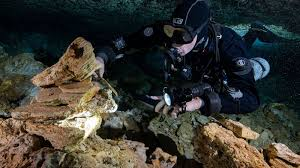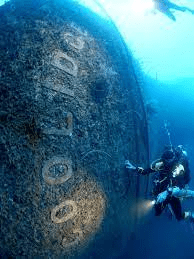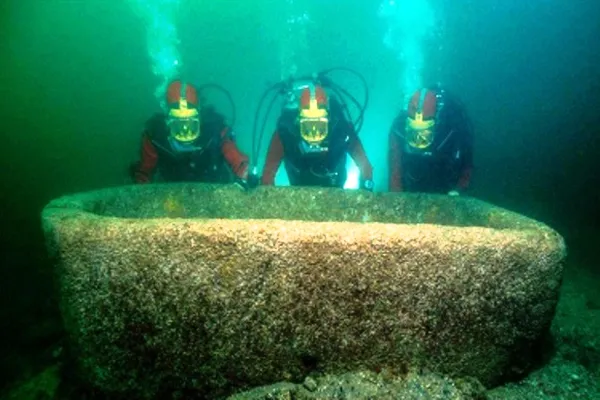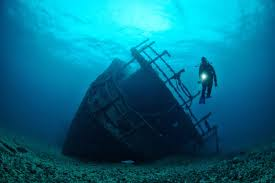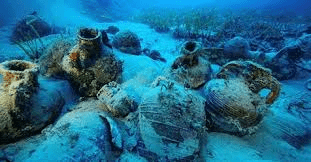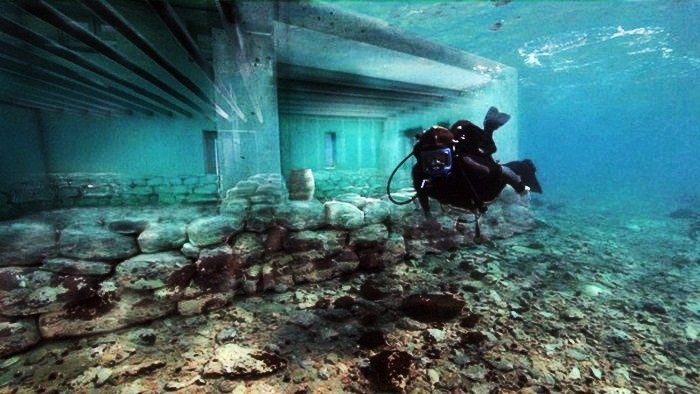The Impact of Maritime History on Ancient Civilizations
Maritime history refers to the study of the interactions between ancient civilizations and the sea. It plays a vital role in understanding the development and growth of these civilizations, as well as their cultural, economic, and technological advancements. Maritime activities encompassed various aspects, including seafaring, navigation, trade, and exploration. The impact of maritime history on ancient civilizations was profound and far-reaching, shaping their social, political, and environmental landscapes.
The understanding of maritime history is crucial in comprehending the ancient civilizations’ relationship with the sea. It provides insights into how these civilizations utilized the ocean as a means of transportation, exploration, and trade. By studying maritime history, researchers are able to gain a deeper understanding of ancient cultures, their customs, and their interactions with other societies.
Table of Contents
Overview of Ancient Maritime Activities
Ancient civilizations like the Phoenicians, Egyptians, Greeks, and Romans were renowned for their seafaring capabilities. They developed advanced navigation techniques and built sturdy vessels that allowed them to explore distant shores and establish trade routes. The Phoenicians, for example, were skilled shipbuilders who ventured into the Mediterranean Sea, establishing colonies and trade networks throughout the region. The Egyptians utilized the Nile River and the Red Sea for trade and commerce, while the Greeks and Romans became dominant maritime powers, expanding their influence through conquest and trade.
Overview of Ancient Maritime Activities
Maritime activities played a crucial role in the development and prosperity of ancient civilizations such as the Phoenicians, Egyptians, Greeks, and Romans. These seafaring cultures were known for their ambitious exploration and robust trade networks, which greatly influenced their economies, social hierarchies, and political systems.
The Phoenicians, known as skilled navigators, left a lasting impact on maritime history. They were celebrated for their advanced boat building practices, using innovative techniques to construct durable and seaworthy vessels. Their masterful navigation skills allowed them to venture into the deep waters of the Mediterranean and even beyond. The Phoenicians were renowned traders, establishing lucrative trade routes along the coastlines, connecting ancient civilizations and facilitating cultural exchange.
Similarly, the ancient Egyptians were also actively engaged in maritime activities. Their utilization of the Nile River and the Red Sea provided them with valuable avenues for trade and transportation. They developed river vessels and even built ships capable of long-distance travel. The Egyptians’ navigation expertise and their use of favorable winds and current systems played a significant role in building their powerful empire and establishing trade links with distant lands.
The seafaring endeavors of the Greeks and Romans further underline the importance of maritime history. The Greeks, known for their prowess in sea exploration, developed advanced navigation techniques, including the use of celestial navigation and the astrolabe. They explored vast territories, establishing colonies and extending their influence through their maritime activities. Likewise, the Romans mastered the art of shipbuilding and used their navy to extend their dominance over the Mediterranean, ensuring the safety of trade routes and fostering economic prosperity.
The maritime activities of these ancient civilizations were not limited to trade. They were also a means of cultural exchange, diffusion of ideas, and the spread of religions. The ships that sailed along the trade routes played a crucial role in connecting different civilizations, fostering the exchange of goods, beliefs, and knowledge. This cross-cultural interaction was particularly evident along famous trade routes like the Silk Road, where the exchange of silk, spices, and precious metals was accompanied by the spread of Buddhism and other religions.
In conclusion, studying the maritime activities of ancient civilizations offers valuable insights into their economic, social, and political structures. The navigation techniques, boat building practices, and trade routes employed by the Phoenicians, Egyptians, Greeks, and Romans shaped their respective societies and influenced the world around them. Understanding and preserving these maritime legacies is crucial for appreciating our shared history and ensuring the sustainable use of our oceans and coastlines.
Benefits Derived from Maritime Activities
Maritime activities have played a significant role in shaping the ancient civilizations by imparting various benefits. One of the primary advantages of maritime activities is cultural exchange and diffusion. These activities have facilitated the exchange of ideas, cultures, and religions between civilizations. For instance, the Silk Road serves as a famous example of maritime trade routes that enabled the flow of goods and ideas between East and West, resulting in a rich exchange of cultures and religions. Similarly, the spread of Buddhism across different parts of Asia was made possible through maritime connections, highlighting the profound impact of maritime activities on cultural dissemination.
Another key benefit derived from maritime activities is economic advancements and development. Maritime trade has played a pivotal role in fostering economic growth and prosperity for ancient civilizations. Through seafaring expeditions, civilizations were able to establish trade networks that brought in valuable commodities such as spices, precious metals, and textiles. These trades not only fueled economic growth but also stimulated entrepreneurship and innovation, laying the foundations for economic development and prosperity.
In addition to economic benefits, maritime activities were instrumental in driving technological innovations. For centuries, maritime expeditions and interactions with different civilizations prompted advancements in shipbuilding, navigation tools, and seafaring techniques. The development of critical tools such as the astrolabe and compass revolutionized navigation, enabling sailors to explore the vast oceans with greater accuracy and confidence. Furthermore, improved ship designs allowed for safer and more efficient maritime transportation, facilitating trade and cultural exchange on a grand scale.
The enduring influence of maritime activities is seen in the social and political structures of ancient civilizations. Maritime trade played a significant role in shaping the social hierarchies and political systems of these civilizations. The establishment of trade routes and centers of maritime commerce contributed to the rise of influential cities and nations. These centers became hubs of power and wealth, fostering the development of social hierarchies and influencing political structures. Additionally, maritime trade facilitated diplomatic relationships and alliances, further bolstering the importance of maritime activities in shaping the sociopolitical landscape of ancient civilizations.
In conclusion, maritime history has brought numerous benefits to ancient civilizations. From facilitating cultural exchange and diffusion to driving economic advancements, technological innovations, and influencing social and political structures, maritime activities have had a profound impact on the development and progression of these ancient societies. Recognizing the significance of maritime history in shaping our shared heritage, it is crucial to continue exploring and researching this field to gain a deeper understanding of the immense influence of maritime activities on ancient civilizations.
Influence on Social and Political Structures
Maritime activities played a crucial role in shaping the social hierarchies and political systems of ancient civilizations. The exchange of goods and ideas through seafaring cultures catalyzed the transformation of social structures and paved the way for the establishment of centers of power. The accumulation of maritime wealth and resources created opportunities for individuals and city-states to rise in prominence.
Moreover, maritime trade fostered diplomatic relationships between ancient civilizations. It acted as a conduit for cultural exchange and facilitated the establishment of alliances and partnerships. The flow of goods and ideas influenced the political dynamics between different societies, as rulers sought to control and harness the economic power generated by maritime activities.
For example, the Phoenicians, renowned maritime traders, used their expertise to establish crucial trade networks throughout the Mediterranean. This not only brought wealth to their city-state of Tyre, but also granted them significant political influence in the region. Their economic prowess and control of key trade routes allowed them to become major players in regional politics, leveraging their maritime power to forge alliances and secure favorable trade agreements.
Similarly, in ancient Greece, maritime activities also played a pivotal role in shaping social and political structures. The city-state of Athens, with its powerful navy, emerged as a dominant force in the region due to its maritime trade and military strength. Naval expeditions and colonial ventures strengthened the city-state’s political influence and allowed it to exert control over a network of maritime allies and tributaries. This maritime power, in turn, contributed to the development of the Athenian democracy and the establishment of its political system.
In conclusion, maritime activities had a profound impact on the social hierarchies and political systems of ancient civilizations. They not only influenced the distribution of wealth and resources, but also played a crucial role in establishing centers of power and fostering diplomatic relationships. The significance of maritime trade in shaping ancient societies cannot be overstated, and it is essential to recognize and study its influence on our shared maritime heritage.
Environmental Impact of Maritime Activities
The impact of maritime history on ancient civilizations goes beyond the socio-political and economic realms. Environmental consequences were an inevitable byproduct of the seafaring cultures of the time. This section delves into the ecological consequences of maritime activities, specifically deforestation for shipbuilding and overfishing.
Maritime civilizations heavily relied on timber resources for constructing their impressive fleets of ships. As a result, mass deforestation occurred in coastal regions to meet the demand for shipbuilding materials. This extensive deforestation disrupted the delicate balance of coastal ecosystems, leading to soil erosion, habitat loss, and the degradation of water quality. The consequences of these actions were felt not only by the marine life but also by the communities that depended on these ecosystems for sustenance.
In addition to deforestation, overfishing was also a significant issue faced by ancient maritime civilizations. The abundance of marine resources, such as fish and shellfish, attracted these civilizations to coastal areas. However, their unsustainable fishing practices often depleted local fish populations, disrupting the delicate balance of marine ecosystems. This overexploitation harmed not only the targeted species but also the entire food web and biodiversity of these ecosystems. Moreover, it had long-term effects on the availability of essential resources for coastal communities, which relied on fishing for survival.
The environmental impact of maritime activities was not limited to local ecosystems but had far-reaching consequences for coastal biodiversity as well. The disruption caused by deforestation and overfishing also affected species that relied on these ecosystems as breeding grounds or migration routes. The loss of these habitats posed a threat not only to the survival of marine species but also to the overall ecological stability of coastal areas.
It is crucial to recognize and acknowledge the environmental legacy left behind by maritime civilizations. By understanding the environmental consequences of their actions, we can learn from their mistakes and strive for more sustainable practices in our present-day interactions with the sea. This knowledge is essential not only for the conservation of coastal ecosystems but also for ensuring the future well-being of our planet and its natural resources. Thus, it is incumbent upon us to preserve our maritime heritage and to undertake further research to uncover the intricacies of our shared environmental past.
Legacy and Lessons Learned
The enduring impact of maritime history on modern societies cannot be overstated. The ancient civilizations that thrived through maritime activities have left a remarkable legacy, shaping not only their contemporaries but also future generations. By examining their interactions with the sea, we can glean valuable insights and lessons learned to navigate our own world.
One of the key aspects of this legacy lies in the importance of preserving maritime heritage. Ancient civilizations’ maritime activities played a vital role in their development, enabling cultural exchange, economic growth, and technological advancements. By preserving and studying their maritime heritage, we can gain a deeper understanding of their achievements and uncover valuable knowledge that can be applied in our own time.
Furthermore, studying the maritime history of ancient civilizations allows us to appreciate the profound impact of their interactions with the sea. These interactions not only shaped their social and political structures but also fostered diplomacy and established centers of power. By understanding how they navigated the often treacherous waters, we can appreciate the importance of international relations and the significance of maritime trade for establishing relationships between civilizations.
Importantly, the lessons learned from ancient civilizations’ maritime history can also inform our approach to environmental sustainability. The ecological consequences of their maritime activities, such as deforestation and overfishing, serve as cautionary tales of the potential harm that can be inflicted on coastal ecosystems and biodiversity. By learning from their mistakes, we can strive to develop more sustainable practices in our own maritime endeavors.
In conclusion, the legacy of maritime history on ancient civilizations is far-reaching and continues to shape our modern societies. It is crucial that we recognize the importance of preserving maritime heritage and learning from the past. By doing so, we can gain valuable insights and lessons that can guide us on a path towards a more sustainable and prosperous future.
Conclusion
In conclusion, the maritime history has played a crucial role in shaping ancient civilizations. Through the exploration of ancient maritime activities, we have gained a deeper understanding of the seafaring cultures of civilizations such as the Phoenicians, Egyptians, Greeks, and Romans. By studying their navigation techniques, boat building practices, and trade routes, we can appreciate the advancements made by these civilizations in the field of maritime exploration.
One of the benefits derived from maritime activities was cultural exchange and diffusion. The interactions between these ancient civilizations facilitated the exchange of ideas, cultures, and religions. Notable examples include the Silk Road, which promoted trade and cultural exchanges between the East and the West, as well as the spread of Buddhism through maritime trade routes.
Another significant aspect was the economic advancements and development brought about by maritime activities. Maritime trade led to economic growth and prosperity for these ancient civilizations. The trade of goods such as spices, precious metals, and textiles fueled this economic progress.
Furthermore, maritime activities drove technological innovations. Through their engagement in maritime trade and exploration, ancient civilizations developed advancements in shipbuilding, navigation tools, and seafaring techniques. Inventions such as the astrolabe, compass, and improved ship designs revolutionized maritime exploration.
Moreover, maritime activities had a profound influence on social and political structures. These activities shaped the social hierarchies and political systems of ancient civilizations. Maritime trade was instrumental in establishing centers of power and fostering diplomatic relationships between civilizations.
However, it is important to note the environmental impact of maritime activities. The demands of shipbuilding and maritime trade led to deforestation and overfishing, which had long-term consequences on coastal ecosystems and biodiversity. Acknowledging these ecological consequences is essential for preserving our shared maritime heritage.
In conclusion, understanding the impact of maritime history is crucial in comprehending the development of ancient civilizations. It is imperative that we continue to explore and research this field to gain a deeper understanding of our shared maritime heritage. By doing so, we can preserve and learn from the interactions between ancient civilizations and the sea.

